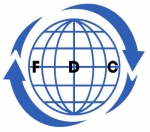|
|
Project Monitoring and Evaluation with Data Management and Analysis course
USD 3,500Get 20.00% off |
Venue: Kigali, Rwanda
Project monitoring and evaluation (M&E) is a critical component of successful project management. It involves systematically tracking and assessing project activities, outputs, and outcomes to ensure that goals are being achieved and resources are being utilized effectively. M&E helps project managers make informed decisions, improve project performance, and demonstrate accountability to stakeholders.
This course aims to provide participants with comprehensive knowledge and practical skills in project monitoring and evaluation, with a specific focus on data management and analysis. Participants will learn the fundamental concepts, methodologies, and tools used in M&E and gain hands-on experience in collecting, managing, and analyzing project data.
The course will begin with an overview of project monitoring and evaluation, emphasizing its importance in ensuring project success. Participants will learn about key M&E concepts such as indicators, targets, baselines, and milestones. They will also explore different M&E frameworks and approaches, including the logical framework approach and results-based management.
Next, the course will delve into data management, focusing on the collection, organization, and storage of project data. Participants will learn how to design data collection tools, develop data collection plans, and establish data management systems. They will also explore techniques for data validation, cleaning, and quality assurance to ensure the accuracy and reliability of project data.
Furthermore, participants will be introduced to data analysis techniques for project evaluation. They will learn how to analyze both quantitative and qualitative data using various statistical and analytical methods. Participants will be introduced to software tools such as Excel, SPSS, or R for data analysis, and they will gain hands-on experience in analyzing and interpreting project data to derive meaningful insights.
Additionally, the course will cover the interpretation and presentation of evaluation findings. Participants will learn how to effectively communicate evaluation results to different stakeholders through reports, presentations, and data visualization techniques. They will also explore strategies for using evaluation findings to inform decision-making and improve project performance.
Throughout the course, participants will engage in practical exercises, case studies, and group discussions to apply the concepts and techniques learned. They will have the opportunity to work with real-world project data and gain practical experience in M&E processes and data management.
By the end of the course, participants will have a comprehensive understanding of project monitoring and evaluation, along with the skills necessary to collect, manage, analyze, and present project data. They will be equipped with valuable tools and techniques to effectively monitor and evaluate projects, make data-driven decisions, and improve project outcomes.
Objectives:
- Understand the fundamentals of project monitoring and evaluation.
- Gain proficiency in data management and analysis for monitoring and evaluation purposes.
- Learn to develop effective monitoring and evaluation frameworks.
- Explore various tools and techniques used in project monitoring and evaluation.
- Understand how to interpret and utilize monitoring and evaluation data to drive project success.
- Enhance skills in reporting and communicating monitoring and evaluation findings.
Organizational Benefits:
By participating in this course, organizations can benefit in the following ways:
- Improved project performance: Proper monitoring and evaluation practices ensure that projects are on track and achieving desired outcomes, leading to increased efficiency and effectiveness.
- Enhanced decision-making: The course equips participants with skills in data management and analysis, enabling organizations to make informed decisions based on accurate and reliable information.
- Accountability and transparency: Monitoring and evaluation provide a framework for accountability, allowing organizations to demonstrate the impact and value of their projects to stakeholders.
- Continuous learning and improvement: Participants will learn how to identify areas for improvement through monitoring and evaluation, facilitating ongoing learning and adaptation within the organization.
- Increased project sustainability: Effective monitoring and evaluation enable organizations to identify risks and challenges early on, mitigating potential issues and ensuring long-term project sustainability.
Who Should Attend:
This course is beneficial for professionals and individuals involved in project management, implementation, monitoring and evaluation, and data analysis. The following individuals and roles would find this course particularly valuable:
- Project managers and coordinators
- Monitoring and evaluation officers
- Data analysts and researchers
- Program officers and administrators
- Development practitioners and consultants
- Government officials and policymakers
Duration: 10 Days
The course will span over 10 days, providing ample time for comprehensive learning, hands-on activities, and practical application of concepts.
Course Outline:
Module 1: Introduction to Project Monitoring and Evaluation
- Key concepts and definitions
- Importance of monitoring and evaluation in project management
- The Role of Monitoring and evaluation in Decision-making
Module 2: Understanding Project Objectives and Indicators
- Defining clear project objectives
- Selecting appropriate indicators for monitoring and evaluation
- Linking Objectives and indicators to project outcomes
Module 3: Developing a Monitoring and Evaluation Framework
- Designing a results-based monitoring and evaluation framework
- Setting project objectives and defining indicators
- Developing a logical framework approach
- Establishing a results-based monitoring and evaluation system
- Developing a Theory of change
- Identifying relevant data sources and collection methods
Module 4: Data Collection Methods and Tools
- Quantitative data collection techniques (surveys, questionnaires)
- Qualitative data collection techniques (interviews, focus groups)
- Sampling techniques and considerations
Module 5: Data Management and Organization
- Data storage and organization best practices
- Data cleaning, validation, and quality assurance
- Introduction to data management software and tools
Module 6: ICT in Monitoring and Evaluation
- Mobile-based data collection using ODK.
- Data visualization - infographics and dashboards
- Use of ICT tools for Real-time monitoring and evaluation
Module 7: Qualitative Data Analysis
- Principles of qualitative data analysis
- Data preparation for qualitative analysis
- Linking and integrating multiple data sets in different forms
- Thematic analysis for qualitative data
- Content analysis for qualitative data
- Manipulation and analysis of data using NVivo.
Module 8: Quantitative Data Analysis – (Using SPSS/Saas/Stata/R/Python)
- Introduction to statistical concepts
- Creating variables and data entry
- Data reconstruction
- Variables manipulation
- Descriptive statistics
- Understanding data weighting
- Inferential statistics: hypothesis testing, T-test, ANOVA, regression analysis
Module 10: GIS in M&E
- Introduction to GIS in M&E
- GIS analysis and mapping techniques
- Data preparation for geospatial analysis
- Geospatial analysis using GIS software (QGIS)
Module 11: Interpreting Monitoring and Evaluation Data
- Data interpretation and analysis
- Identifying trends and patterns
- Making evidence-based decisions
Module 12: Utilizing Monitoring and Evaluation Data for Project Improvement
- Using data to identify strengths and weaknesses.
- Developing recommendations for project improvement
- Creating an action plan based on evaluation findings.
Module 13: Reporting Monitoring and Evaluation Findings
- Types of monitoring and evaluation reports
- Presenting findings to different stakeholders
- Effective data visualization and reporting techniques
Module 14: Communicating Monitoring and Evaluation Results
- Communicating findings to project teams and stakeholders
- Strategies for effective communication of evaluation results
- Addressing challenges in communicating complex data
Module 15: Ethical Considerations in Monitoring and Evaluation
- Ensuring data confidentiality and privacy
- Ethical guidelines for data collection and analysis
- Handling sensitive information in monitoring and evaluation
Module 16: Monitoring and Evaluation for Adaptive Management
- Integrating monitoring and evaluation into adaptive management processes
- Using evaluation findings for iterative project adjustments
- Incorporating feedback loops for continuous improvement
Module 17: Gender and Social Inclusion in Monitoring and Evaluation
- Understanding gender and social inclusion considerations
- Applying a gender and social inclusion lens to monitoring and evaluation
- Addressing biases and promoting equity in evaluation processes
Module 18: Impact Evaluation and Causal Inference
- Introduction to impact evaluation
- Causal inference methods (randomized control trials, quasi-experimental designs)
- Assessing long-term impact and attribution
Module 19: Learning and Knowledge Management in Monitoring and Evaluation
- Developing a culture of learning within organizations
- Knowledge management strategies for monitoring and evaluation
- Documenting and sharing lessons learned.
General Notes
- All our courses can be Tailor-made to participants' needs.
- The participant must be conversant in English.
- Presentations are well-guided, practical exercises, web-based tutorials, and group work. Our facilitators are experts with more than 10 years of experience.
- Upon completion of training the participant will be issued with a Foscore development center certificate (FDC-K)
- Training will be done at the Foscore development center (FDC-K) centers. We also offer inhouse and online training on the client schedule.
- Course duration is flexible, and the contents can be modified to fit any number of days.
- The course fee for onsite training includes facilitation training materials, 2 coffee breaks, a buffet lunch, and a Certificate of successful completion of Training. Participants will be responsible for their own travel expenses and arrangements, airport transfers, visa application dinners, health/accident insurance, and other personal expenses.
- Accommodation, pickup, freight booking, and Visa processing arrangement, are done on request, at discounted prices.
- Tablet and Laptops are provided to participants on request as an add-on cost to the training fee.
- One-year free Consultation and Coaching provided after the course.
- Register as a group of more than two and enjoy a discount of (10% to 50%)
- Payment should be done before commencement of the training or as agreed by the parties, to the FOSCORE DEVELOPMENT CENTER account, to enable us to prepare better for you.
For any inquiries, please contact us.
| Kigali, Rwanda | May 20 - 31 May, 2024 |
Registration: 00:00:am - 11:55:am
Class Session: 09:00:am - 05:00:am
| USD 3,500.00 | (20% for two or more participants) |
Foscore Development Center +254712260031
Related Courses
 Research Design, ODK Mobile Data Collection, GIS Mapping, Data Analysis using NVIVO and SPSS Course
Research Design, ODK Mobile Data Collection, GIS Mapping, Data Analysis using NVIVO and SPSS CourseOn going
12 days, 22 Jul - 02 Aug, 2024
Foscore Development Center
 HIV and AIDS Management and Eradication Course
HIV and AIDS Management and Eradication Course
12 days, 05 - 16 Aug, 2024
Foscore Development Center







